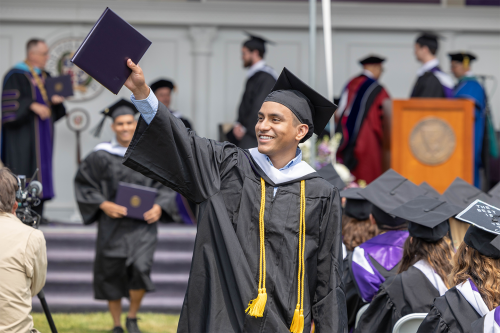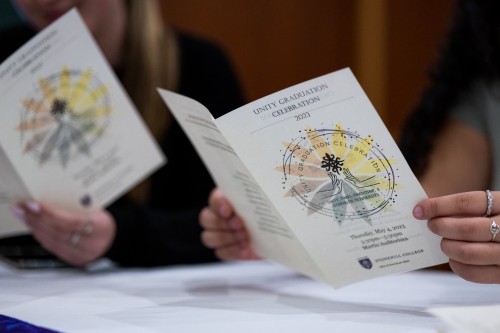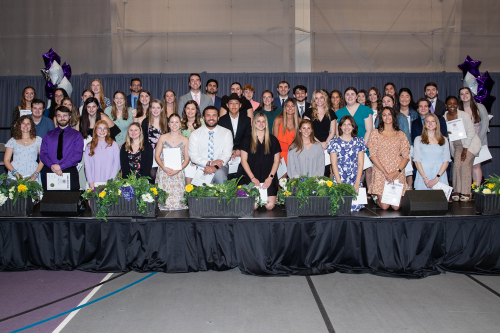Two Seniors Receive Distinguished History Honors
Rebecca Morgheim ’23 was honored with the 2023 Thomas C. Clarke Award, while David Satkowski ’23 received the 2023 Peter R. D’Agostino Prize.
Stonehill College’s Department of History recently honored two graduating seniors for their impactful contributions to the field.
2023 Thomas C. Clarke Award
Rebecca Morgheim ’23 received the 2023 Thomas C. Clarke Award, which honors a graduating history major who demonstrates a commitment to the study of history, the principles of a liberal arts education, and the mission and values of Stonehill College. This prize is named after a long-time and now retired professor in the history and religious studies departments who is a member of one of Stonehill’s earliest graduating classes.
Morgheim, who also majored in secondary education, was heavily involved in the Stonehill History Society, which provides campus community members opportunities to explore local, national, and global history and debate how it has affected their lives. She has also held leadership roles in the Stonehill Theatre Company and the Musical Theatre Club. Off campus, she has served as a tutor at the Stoughton Homework Volunteer Center.
“Rebecca aspires to teach high school history, and she exemplifies the commitment to academic excellence and to service that the Clarke Award was designed to commemorate,” said John Rodrigue, the Lawrence and Theresa Salameno Professor of History at Stonehill College.
2023 Peter R. D’Agostino Prize for Excellence in History
David Satkowski ’23 received this year’s Peter R. D’Agostino Prize for Excellence in History, given annually to a history major whom faculty determine to have written the best senior thesis. The award was created in memory of a member of Stonehill’s history and religious studies departments who passed away in 2005.
Entitled “The Inferiority Complex: The Portrayal of Native American Slaves in Colonial New England, 1700-1750,” Satkowski’s thesis examines the evolution in the rationalizations that European settlers offered in defense of enslavement, involuntary servitude, and other modes of forced labor to which Native Americans were subject in the decades following King Phillip’s War of the 1670s. The project was advised by Professor Edward McCarron.
“In addition to grounding his thesis in extensive research in primary source materials, David brings a nuanced understanding to difficult subject matter, and he draws measured and insightful conclusions,” Rodrigue said. “He also situates his findings within the existing scholarly literature, to which he makes an original and important contribution. David’s thesis offers a model of historical scholarship.”


